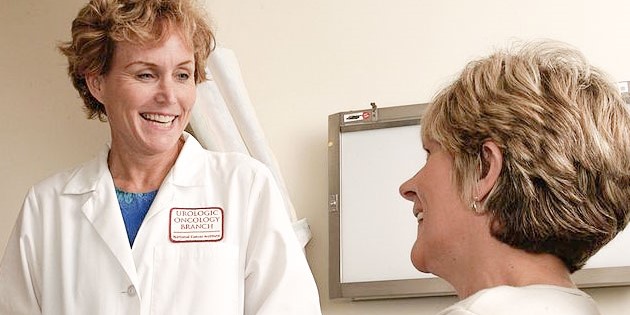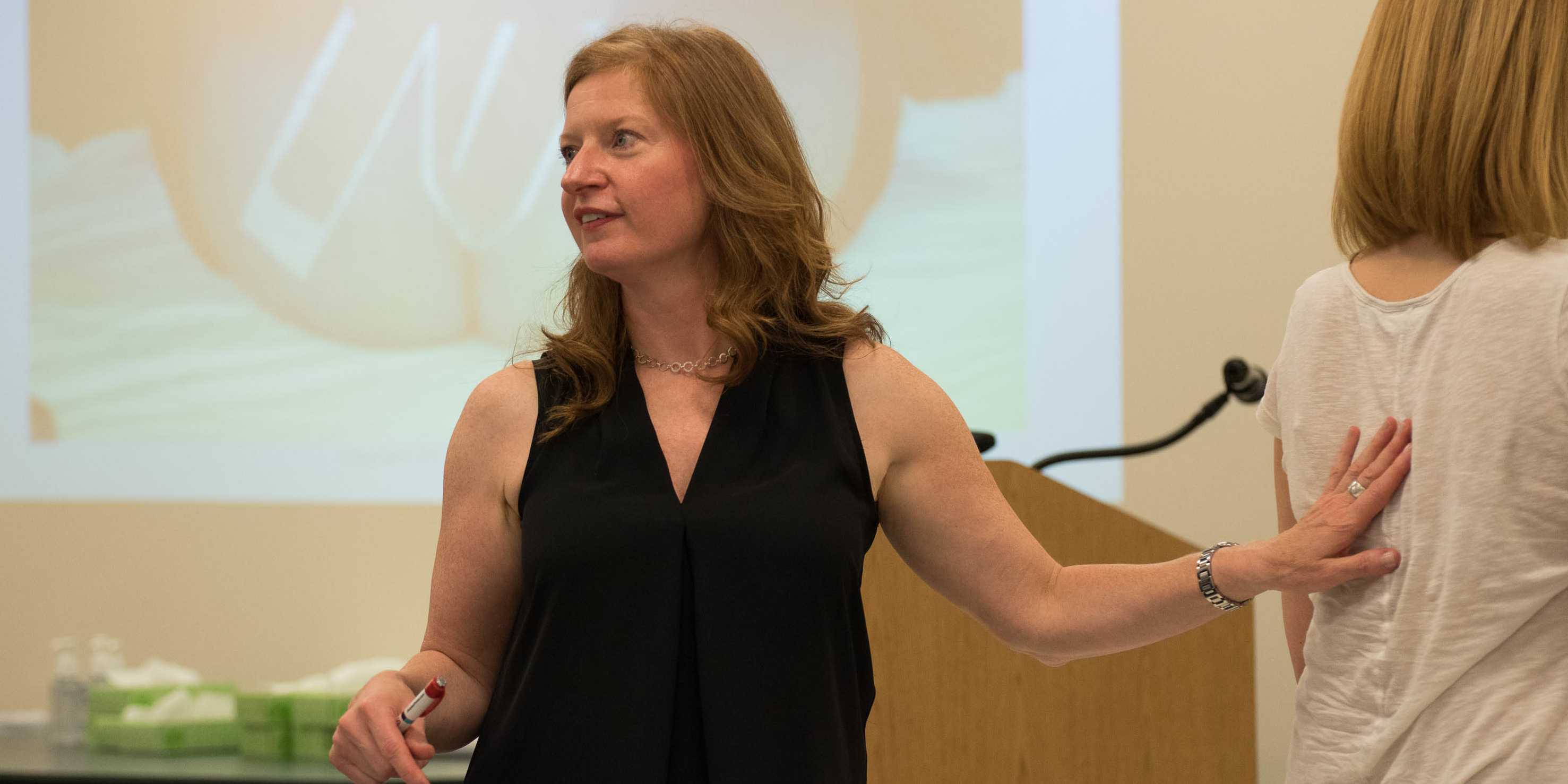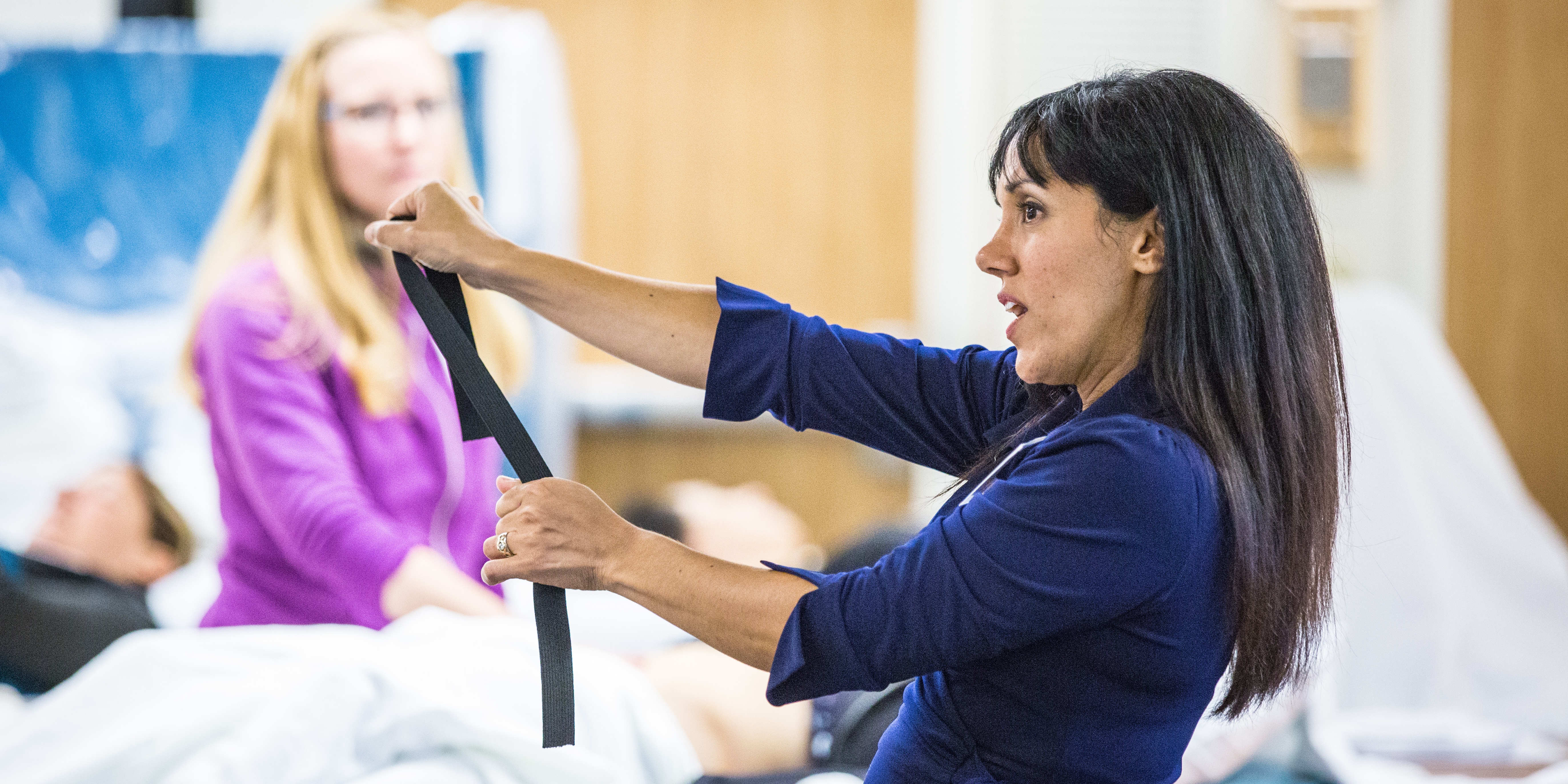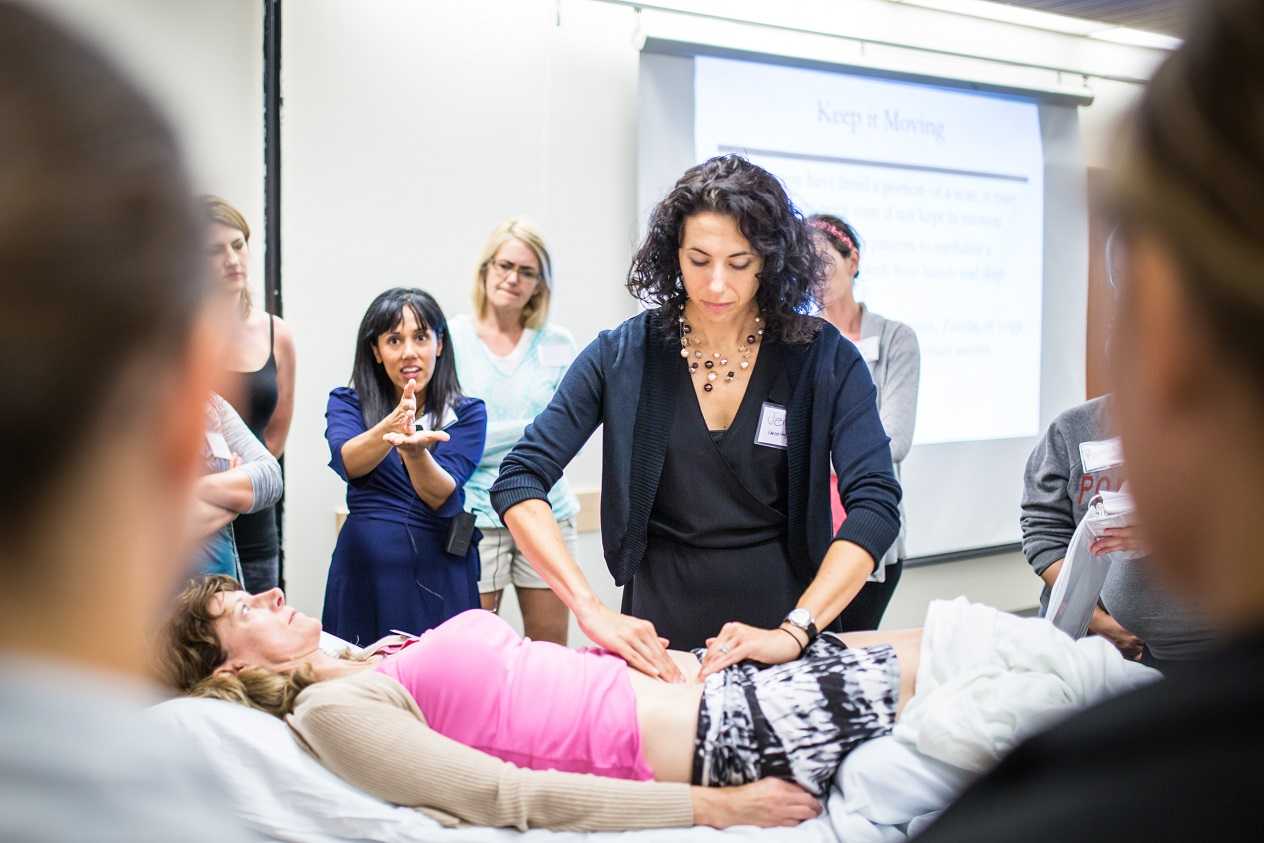A Must-See Interview with Carole High Gross - Eating Disorders and Pelvic Rehabilitation
Special thanks to faculty member Mora Pluchino, PT, DPT, PRPC, and Carole High Gross, PT, DPT, PRPC taking time during HWConnect 2023 to sit down and do this interview. Carole earned her Doctorate of Physical Therapy from Arcadia University in 2015, and her Master of Science in Physical Therapy in 1992 from Thomas Jefferson University, and earned her Pelvic Rehabilitation Practitioner Certification and enjoys working as a Pelvic Clinical Rehabilitation Specialist for Lehigh Valley Health Network. She is a Lead Teaching Assistant and instructor with Herman & Wallace. You can meet Carole in her upcoming course Eating Disorders and Pelvic Health Rehabilitation: The Role of a Rehab Professional scheduled for October 28-29, 2023.
Join Carole High Gross on October 28th to begin the journey to learn more about signs, symptoms, and the journey that individuals with eating disorders endure. Explore the ways pelvic health professionals can assist them on this journey in Eating Disorders and Pelvic Health Rehabilitation.
As pelvic health practitioners:
- We are NOT going to treat eating disorders.
- We are NOT going to diagnose eating disorders.
- We CAN and SHOULD be asking questions!
- Encourage patients to seek additional support, help them find appropriately trained providers.
- We CAN provide support and speak with words that promote validation, wellness, and healing rather than words that are unintentionally triggering, harmful or nonvalidating.
- We CAN provide these individuals with manual skills, activities, and educational “tools'' to assist in GI distress, constipation, abdominal bloating, urinary dysfunction, pelvic pain, sexual dysfunction, POP issues, postural / body mechanics, abdominal canister coordination/function, tightness in trunk, hips, shoulders, rib cage, etc.
These individuals would benefit from pelvic health professionals being an additional part (not the lead) of their treatment team. This course will provide an opportunity for Pelvic health professionals to:
- Appreciate and begin to understand the biopsychosocial complexity of eating disorders
- Understand how this mental illness creates serious and life threatening issues in body functions
- Understand our role as pelvic practitioners and what we can offer to provide relief or reduction in symptoms
Eating Disorders and Pelvic Health Rehabilitation will not have all the answers but rather will be a step forward for clinicians to expand their understanding and to seek out additional resources to learn more and provide evidence-based treatment for these individuals.
Course Testimonials

"This course was an eye-opener for me, and made me think back to patients who may have had eating disorders that I wasn’t aware of at the time. When healthcare providers think about eating disorders, we might think of a stereotype perpetuated by the media, and not realize that the patient in front of us, who doesn’t look like that stereotype, is in the throes of an eating disorder.
Worse, we may not realize that the words we use (even words and phrases that we were taught to use) can unintentionally cause harm to patients who are struggling with an eating disorder. Even if our patient discloses to us that they have an eating disorder, or we suspect that they do, what do we do with that important, sensitive information? How do we talk to them about it? How do we modify our treatment plan with them? How do we refer patients to the appropriate doctors, therapists, and dietitians?
This course has changed the way I think about and discuss fluid and fiber intake, abdominal bloating and cramping, constipation, and GI disorders with my patients, and has changed the way I educate patients on exercise, bowel and bladder habits. It has given me more confidence in having open, compassionate and vulnerable conversations with patients.
Not all eating disorders are alike. I work with many patients who have chronic illnesses, and after taking this class, I realized that Avoidant Restrictive Food Intake Disorder is prevalent in some of these populations.
This course gave me the opportunity to hear first-hand accounts from patients with eating disorders, how the medical system either harmed or supported them, and how skilled and understanding pelvic health providers, who were able to work with them non-judgmentally, changed their life for the better. Dr. Carole High Gross created this course not only to give pelvic health therapists an awareness of eating disorders, but to give us tangible treatment techniques including mindfulness techniques, breathing techniques, manual therapy techniques, and exercise interventions that we can use with this patient population."
~ Julia Kajen, PT, DPT, OCS
I attended the Herman and Wallace Eating Disorders and Pelvic Health Rehabilitation Course last year as I wanted to further grow my Pelvic Health expertise in working with teens and children. I am a certified Pelvic Health PT and have been treating Adults and children with pelvic health dysfunction for several years.
However, I was referred my first patient with an Eating Disorder so when I heard about this course I signed up right away.
Hands down, this has been the best course I have ever taken from Herman and Wallace.
Let me tell you why. This world of ED involves so much more than Physical Therapists and Physicians and Carole took the time to interview many other experts in the field and that was the mandatory pre course listening. It was a day full of exciting new learning, engaging me with a much bigger picture.
Because there are many more providers besides MDs involved with the care of these patients both before they come to us and while they are seeing us during aftercare, it is very important that we educate them about what a Pelvic Health Rehabilitation Therapist can do for their clients.
This has opened many new doors for me. These patients and their families need our expertise and I am very passionate about this new niche thanks to Carole’s education and her passion!
~ Carol Stillman, PT, DPT, PHC
CEO Sutton Place Physical and Aquatic Therapy
Certified Pelvic Health Therapist
Eating Disorders and Pelvic Health Rehabilitation

Price: $495.00 Experience Level: Beginner Contact Hours: 17 hours
Course Dates: October 28-29, 2023; April 6-7, 2024; October 19-20, 2024
Description: This course explores types of eating disorders including: anorexia nervosa, bulimia nervosa, binge eating disorder, ARFID (Avoidant Restrictive Feeding Intake Disorder) and OSFED (Otherwise Specified Feeding and Eating Disorder). We will also discuss conditions which do not yet have formal diagnostic criteria such as orthorexia and diabulimia and we will touch on Pica and Rumination Disorders.
Eating disorders are mental illnesses which manifest with physical complications which can be both dangerous and life-threatening. Eating disorders affect people of all ages, races, ethnicities, genders, shapes and sizes and do not discriminate. Individuals with eating disorders may or may not appear underweight and are often in larger bodies. Body size nor laboratory testing determine or confirm the severity of the dangerous consequences of the eating disorder. Specific causes of eating disorders are not clearly known, however, biological, psychological, and sociocultural factors contribute to the initiation and continuation of an eating disorder.
Many people have disordered eating patterns, however, nearly 1 in 10 will develop an eating disorder during their lifetime. Eating disorders are serious mental health AND physical illnesses characterized by highly distressing attitudes, beliefs and behaviors related to one’s food intake and in many cases body shape and weight. This results in associated distressing thoughts and emotions affecting physical, psychological and social function. Eating disorders included in the DSM-5 (Diagnostic and Statistical Manual of Mental Disorders: 5th Edition) are: Anorexia Nervosa (AN), Bulimia Nervosa (BN), Binge Eating Disorder (BED), Avoidant/Restrictive Food Intake Disorder (ARFID), Other Specified Feeding and Eating Disorder (OSFED), Unspecified Feeding or Eating Disorder (UFED), Pica and Rumination disorder. (psychiatry.org) .
Most health care professionals understand very little about eating disorders and disordered eating. There is a weight stigma with health care identifying “health” in terms of weight, BMI, body appearance, exercise and activity. As rehabilitation professionals, it is our responsibility to understand that health looks and feels different for everyone. In addition, we may be able to identify signs and symptoms of eating disorders and be able to provide support for these individuals through proper referral and modification of our rehabilitation plan of care.
Going one step further, pelvic / abdominal wall practitioners have a unique opportunity to work with individuals as they are experiencing GI distress, abdominal pain, abdominal bloating, bowel dysfunction (constipation or fecal incontinence), urinary issues, prolapse symptoms and pelvic pain. We also need to understand the impact of eating disorders has with pregnancy and during the postpartum time.
If we, as pelvic health providers, take the opportunity to listen and observe, we may be able to identify individuals of all genders who are struggling with disordered eating or an eating disorder which may or may not have been formally diagnosed. We have a specific skill set which has the potential to positively affect the abdominal, bowel, bladder and pelvic related symptoms - however, we may not be looking close enough into the causative reason for the dysfunctions.
By accepting you will be accessing a service provided by a third-party external to https://hermanwallace.com/









































